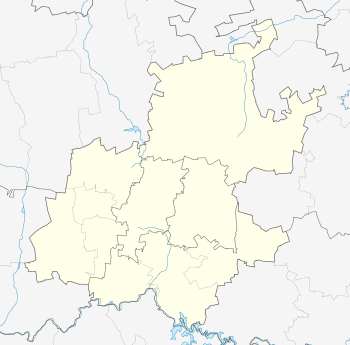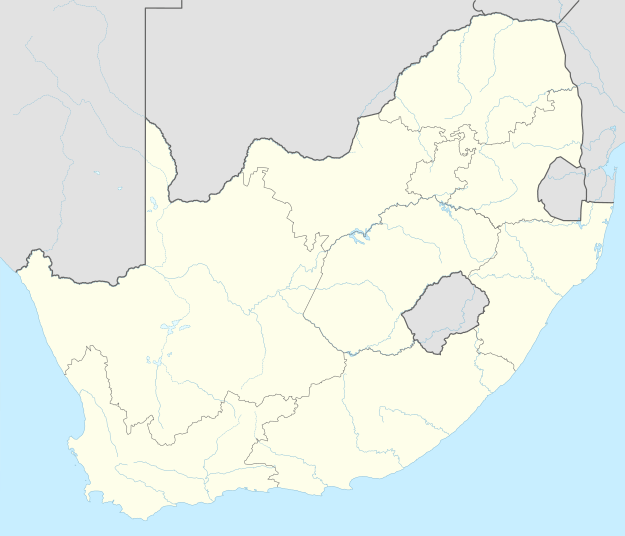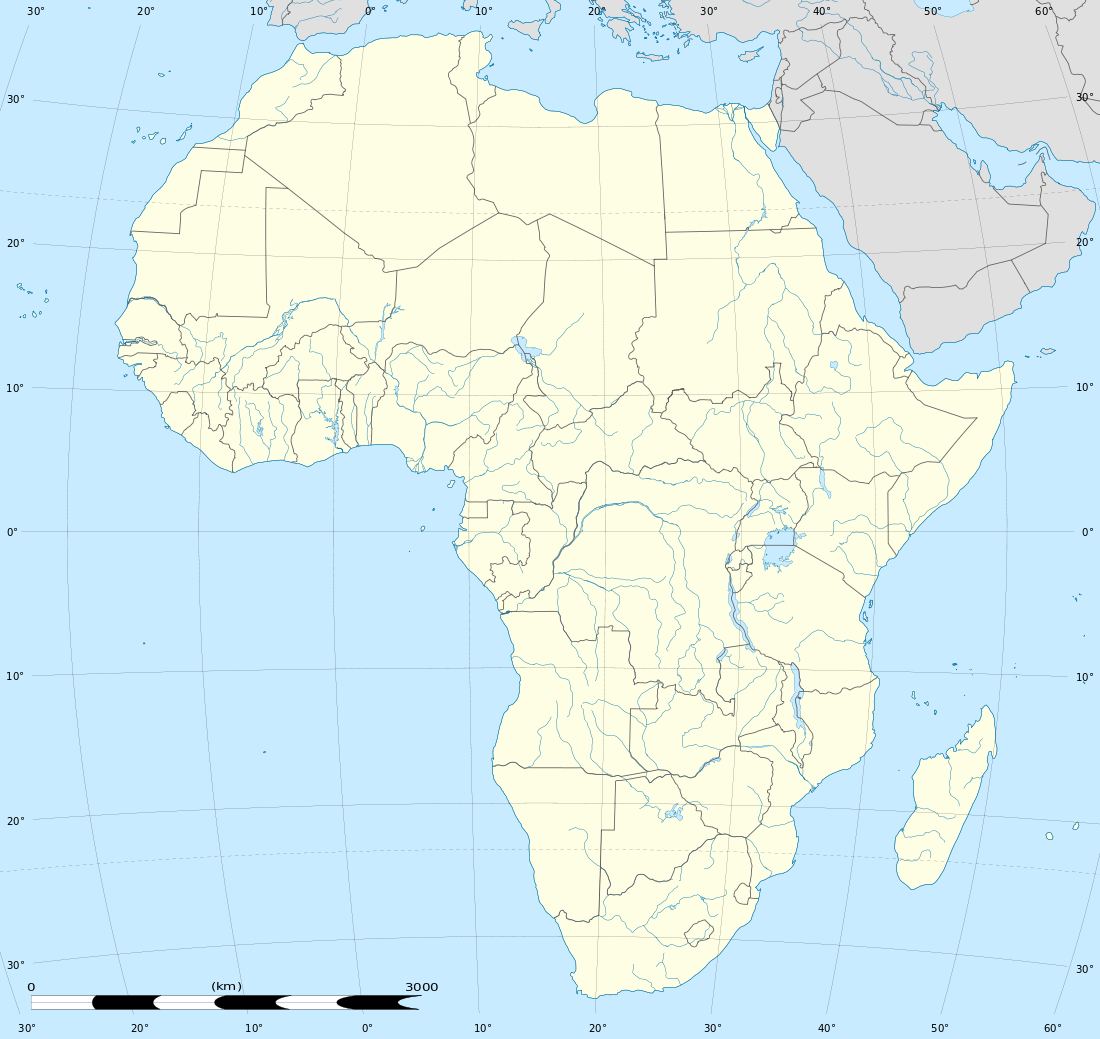KwaThema
| KwaThema Last Town | |
|---|---|
 KwaThema  KwaThema KwaThema (South Africa)  KwaThema KwaThema (Africa) | |
| Coordinates: 26°17′51″S 28°24′9″E / 26.29750°S 28.40250°ECoordinates: 26°17′51″S 28°24′9″E / 26.29750°S 28.40250°E | |
| Country | South Africa |
| Province | Gauteng |
| Municipality | Ekurhuleni |
| Area[1] | |
| • Total | 13.93 km2 (5.38 sq mi) |
| Population (2001)[1] | |
| • Total | 99,517 |
| • Density | 7,100/km2 (19,000/sq mi) |
| Racial makeup (2001)[1] | |
| • Black African | 99.7% |
| • Coloured | 0.2% |
| First languages (2001)[1] | |
| • Zulu | 56.8% |
| • Sotho | 8.7% |
| • Northern Sotho | 8.6% |
| • Xhosa | 8.6% |
| • Other | TN% |
| Time zone | UTC+2 (SAST) |
KwaThema is a township south-west of Springs on the East Rand, Gauteng, South Africa. It was established in 1951 when Africans were resettled from Payneville because it was considered by the apartheid government to be too close to a white town. The new township's layout was designed along modernist principles and became a model for many subsequent townships, although the envisaged social facilities were not implemented. The typical South African township house, the 51/9, was one of the plans developed for KwaThema. A black local authority with municipal status was established in 1984. In 1985 KwaThema experienced violent unrest and right-wing vigilante activity.
KwaThema is a multi-racial township where most of South Africa's eleven official languages are spoken but the predominant ones are Sotho and Zulu. KwaThema has given birth to many successful individuals who have helped in the development of the town.
History
kwaThema was named after Selope Thema who was a South African political activist and leader.[2][3]
Notable residents
- Andries Maseko (1955 – 2013), South African footballer
- Eudy Simelane (1977–2008), South African footballer and LGBT-rights activist, raped and murdered in the town[4]
- Lucas Sithole (1931–1994), South African sculptor
- Hilda Tloubatla (b. 1942), South African mbaqanga singer
References
- 1 2 3 4 "Main Place KwaThema". Census 2001.
- ↑ "Olive Schreiner Letters Online". www.oliveschreiner.org. Retrieved 2015-09-06.
- ↑ "Richard Victor Selope Thema | South African History Online". www.sahistory.org.za. Retrieved 2015-09-06.
- ↑ Kelly, Annie (12 March 2009). "Raped and killed for being a lesbian: South Africa ignores 'corrective' attacks". The Guardian. Retrieved 2009-03-14.
More information
.svg.png)